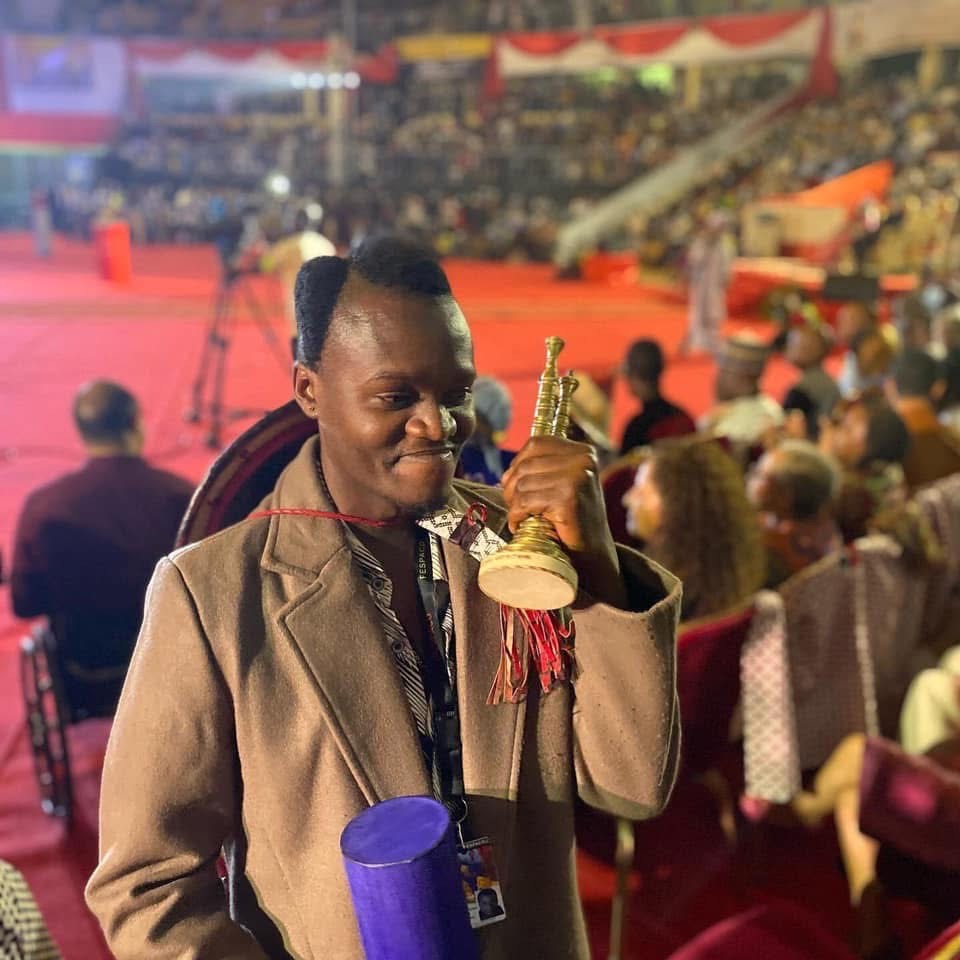Tell us a little about yourself…
I am Ebuka Njoku. A Nigerian filmmaker, and media entrepreneur– I’m changing the world one shot at a time. Born and raised in the Eastern part of Nigeria, I moved to Lagos after school to chase my Nollywood dreams. I learnt a lot of things from working with the Lagos arm of Nollywood, especially from the legendary Yinka Ogun.
But Lagos never felt like home to me. I also discovered I was needed more in the East. After the release of my first feature; Yahoo +, I moved back home. My second feature, ỤNỌ (The F in Family) had a cinema run last year, and would soon be available for streaming.
I’ve also co-produced, and invested in a couple of films. One is This Is Love, a documentary film about LGBTQ+ couples in Nigeria. One is a short film about a Biafran Soldier who lost his family in the war – struggling with survival guilt. The title is Loose Cannon. It was directed by Olisa Eloka – a brilliant filmmaker about to take over the industry. The most recent one is Ọkụkọ Christmas, a Christmas horror film shot
with Samsung S23.
I’m currently learning Chinese, feasting on unhealthy dose of horror films, and thrillers, and developing my next feature Something about the End of the World.

What inspired you to become a filmmaker, and how has your heritage influenced your work?
At twelve, I wrote my first novel. By the time I became a teenager, I had tried my hands in poetry and drama, and became a fan of Shakespeare. I noticed he often complained about the limitations of the stage. One day, I asked myself ‘If Shakespeare was born in the 90s like I was, would he be a theatre practitioner?’ At this point, Kunle Afolayan had made The Figurine – the film that made me realize that being Nigerian was no longer an excuse
for mediocrity. Coincidentally, a classmate of mine was learning cinematography and editing. He needed to experiment on a film project to test his new skills, so he approached me to write the short film. I read up on scriptwriting, and gave it a shot. I was
also on set to help out with the production. Gradually, I fell in love with filmmaking.
I’m a student of Zik’s philosophy of the African Renaissance. Zik didn’t just see himself as an Igbo man. He equally saw himself as a Nigerian, an African, a citizen of the world, and an individual of his own. He believed that for Africans to earn a seat at the world’s table, we should see ourselves from that perspective, as that would give us the confidence to explore our heritage in making a mark on the world. With each film I make, I’m telling the world this is the way we are as Igbo people, Nigerians, and Africans. And this is how I see the world.

What challenges have you faced as a filmmaker of African origin, and how did you overcome them?
The major challenge is limited resources. By resources, I don’t just mean money. The knowledge gap is crazy, and we don’t have enough structure to maximize the available resources we have, for efficient growth. I can’t say I’ve overcome them. I’m in the
process like every other intentional Filmmaker on the continent.
I’m learning to see those challenges as opportunities to contribute more to the development of Nigerian, and African Cinema. With each project I make, I aim to be better at something. At the moment, I’m studying financing, and management, so as to figure out a way to gain more resources, and manage the available ones better. I’m also studying film practices, and markets around the world, so I can position myself better for the next phase of Nollywood. The phase I call – the world domination phase.

What advice would you give to aspiring African filmmakers aiming to share their stories on a global stage?
I think the first step is seeing yourself as a global citizen. It helps to be in tune with the zeitgeist. You also need a sense of home pride. That would help you figure out elements of African lifestyle, history, and culture you can use to make global impacts. It is by contributing to global pop culture you become a global filmmaker. You have to aim for the highest standards without losing your local essence. We have to give the world something they can’t offer, but can relate to; stories that’d make them see themselves in us, and want to know more about us.
Like the Afrobeat guys do it, you may have to first conquer the home front. The audience, and resources you build doing that, would help in opening the doors to the world for you.
You also have to seek international collaboration – not just in terms of production,
but also marketing, branding and distribution.












